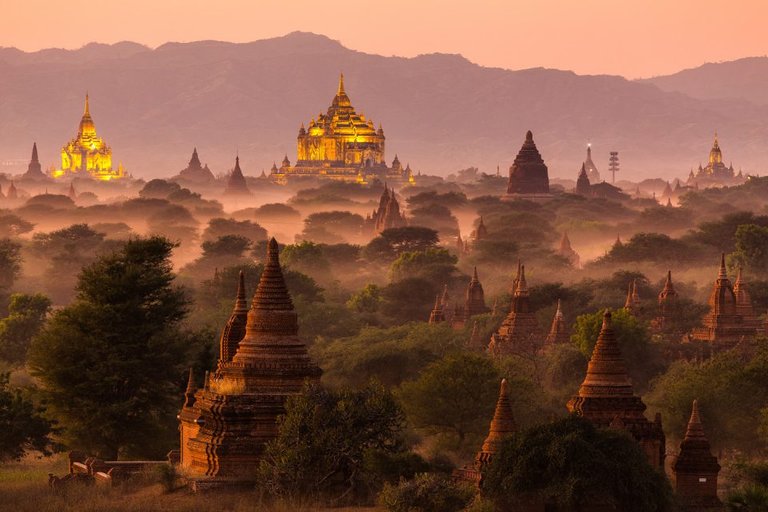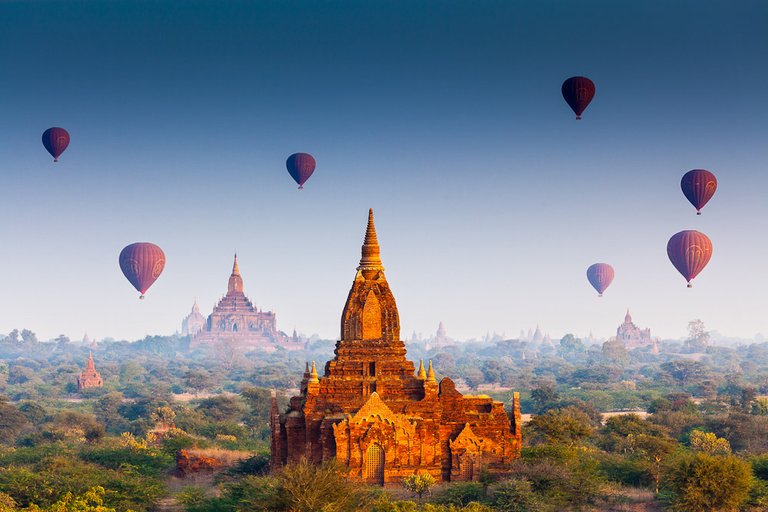The ancient city of Bagan is located in a 26 square-mile plain in the Mandalay Region of Myramar, a state in Southeast Asia formerly known as Burma.

Majestic and other-worldly temples are scattered throughout the plains, and all of them relics to the kings of Bagan, who built them in 1057 and 1287. From the 9th to the 13th century, Bagan was the capital of the Pagan Kingdom. During this time over 10,000 religious monuments were built.


From 1044 to 1287, The city of Bagan was prosperous and thriving. It became a center for religious and secular studies, specializing in grammar, philosophical-psychological studies, astrology, alchemy, medicine, and legal studies. Bagan's religion and culture were mainly unorthodox and followed religious trends that allowed different sects of Bhuddism to co-exist.

Around 50,000 to 200,000 people were estimated to have lived in the once thriving cosmopolitan. Due to repeated Mongul invasions, the Pagan Kingdom collapsed in 1287. The city was never recognized as a capital again, and carried on well into the 15th century as a small human settlement.
Bagan is one of world’s greatest archeological sites. Despite the collapse of the Pagan Empire and being located in an active earthquake zone, over 2,200 temples, pagodas, and monasteries still stand to this day. The area is a main attraction for Myramar's tourism industry.


Bagan is reported to rival Machu Picchu and and Angkor Wat in Cambodia as a bucket list destination. To top off the once in a lifetime adventure, you can even ride a hot air balloon to view the ancient city from above.
 source: Wikepedia - Bagan
source: Wikepedia - Bagan














What amazing photos!!! Bagan is definately one of the places on my bucket list to visit!
Nice photography, thanks for sharing with us.